Allow us Irish abroad to vote for President
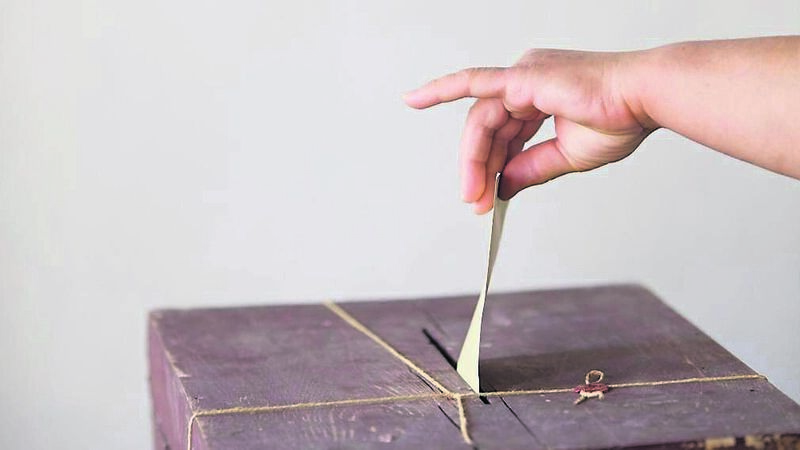
Is it too big of an ask for those of us overseas to have a say in electing the President, the first citizen that represents all of us? So asks Morgan O'Sullivan
EASTER weekend reminded us of the dreams and ideals of the heroes of 1916.
Ireland has developed into a respected beacon of hope for the smaller nations of the world. From our role in the United Nations to punching above our weight in the diplomatic, arts, cultural and sporting arenas.
It is with this optimistic note that Irish leaders and voices from around the world will convene on Dublin Castle for the Global Civic forum on April 20. This optimistic note is tempered by the sad reality that there is such a large segment of the Irish population that has essentially been abandoned.
Some 20% of the Irish population are scattered all over the globe. Very often they left out of economic necessity, a lack of opportunity and a lack of hope. They represent the people of Ireland every day in everything they say and do. Many want to return home but cannot. Many will want to come home in the future but will not be able to. Their hearts will always be in Ireland. Is it too big of an ask for those living abroad to be given the right to vote in an Irish Presidential election?
I left Cork in September, 2004, clinging to the hope I would one day bring my American sweetheart home. Jobs and life caught up with us and I now have the most amazing wife and three children living in the Florida sun.
I am Irish. I will always be Irish. Yet there are times I feel that Ireland has abandoned me.
Returning home from Florida, I am viewed as the Yank. While living in the U.S I am viewed as the Irishman. And even though I am now a citizen of both countries, there are times I feel I am a citizen of none. That is the true story of the Irish diaspora.
Our families love and miss us, and we miss them, but the moment we step onto the plane in Cork or Dublin or Shannon, our connection to home is severely and irreparably damaged.
I essentially became disenfranchised from the right to vote as soon as the plane left the tarmac.
We still carry Irish passports. We maintain the same cultural ethic. Yet the reality is we are essentially no longer important in the eyes of the state. There is no tax money being generated from us and no social welfare being paid out. It is as if we never existed.
The detractors will suggest the emigrant is not entitled to have a say in the affairs of the country, with the old adage ‘no representation without taxation’. After all, why should those living abroad be afforded a voice in the affairs of the country, when they are not even living there?
In terms of taxation, the reality is that only the U.S in the developed world places a tax on its citizens on foreign earned income. Eritrea follows America’s lead. It is not demanded amongst any of our European counterparts and nearly every country has some form of emigrant voting rights.
Is it too big of an ask for those of us overseas to have a say in electing the President, the first citizen that represents all of us?
What is it like being an immigrant abroad? You live with the reality your phone could ring at any time, calling for you to rush home to Ireland for an emergency. You miss birthdays, christenings, weddings, and family gatherings, and you live them through phone calls and FaceTime.
For me, the struggle to make it home is financial. For the undocumented, they have no choice. They knew of their sacrifices when departing, yet it still jars at the soul.
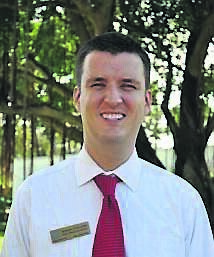
In the early years, I struggled with the idea of becoming an American citizen as I longed for home, and always thought next year would be the year to return. We even sent money home every month to pay health insurance in case we were to return home to start a family.
Yet people always asked when I was going to become a US citizen. Nothing makes me prouder than being Irish. How could I dilute that?
The advent of the Trump administration would change everything. Even though I had permanent residency, a culture of fear had developed in this country and a reality that nothing appeared permanent anymore. The time had come to protect the ones I love. The time had come to be able to have a say in the future shape of the U.S, and not just for me, but for the thousands of Irish who have never had that opportunity.
I became a US citizen in July, 2019. I will always be Irish, but now, like my wife and three children, I am American as well. Does this make me any less Irish than my brothers and sisters? Fundamentally it does not due to dual citizenship agreements between the two nations, of which the bond goes back so far.
Raising an Irish family overseas is a task I embrace. As soon as the children were born, we applied for Irish citizenship. Drives to daycare and school were undertaken while learning our numbers in Irish and singing Irish songs.
The internet and advent of smartphones has transformed the experience of the immigrant. RTÉ news is the first thing I look at in the morning. I connect with friends and family via social media. I can even facetime my brother to watch a local hurling match. I get all the TV channels and shows beamed in from home.
Every so often, I even splurge on some rashers and sausages, but that can be costly. The reality is when it comes to goings on in Ireland, I often know more than my siblings. I can only hope a time will come when those at home will see me as Irish once again.
Bunreacht na hEireann states that it is the “birthright of every person born in the Island of Ireland … to be a part of the Irish Nation”. Wouldn’t it be nice if all those Irish citizens living abroad were allowed to be heard?
The Good Friday Agreement ensured every person born on the Island is entitled to Irish citizenship, yet those in the six counties are unable to vote in the selection for our first citizen. The husband of Mary McAleese, Martin McAleese, could not even vote for his wife in her presidential election. I am proud of my culture and heritage. But at times it can feel that our love for home is not reciprocated.
Two signatories of the Easter Proclamation were emigrants (Thomas J. Clarke and James Connolly) and fought for the rights of Irishmen around the world. They were honoured and recognised throughout the centennial celebrations. They will never be forgotten in Irish history.
Let us take this opportunity to ensure we never forget all those who have left our shores. Our voices have been silenced for too long.
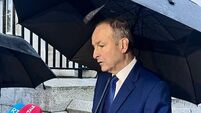

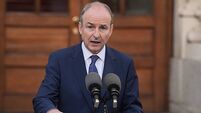



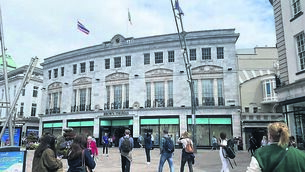



 App?
App?




